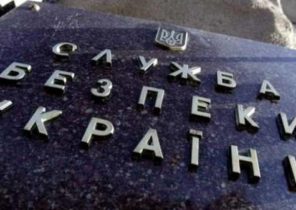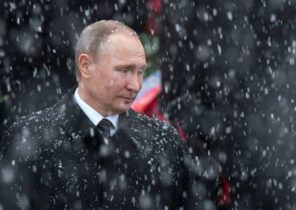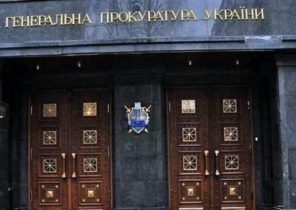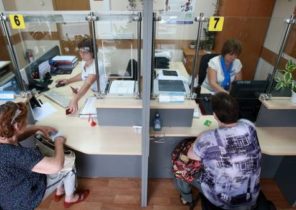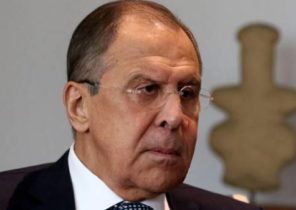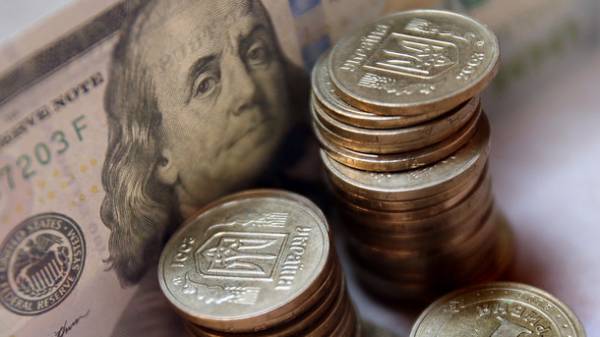
The next three months for the banking system of Ukraine will be stable, according to respondents, the experts Today. So, the hryvnia exchange rate will be relatively stable, will fluctuate in the corridor of 26 and 26.5 UAH/USD., but in the early autumn will jump to 27 – 27,5 UAH. Interest rates on loans and deposits and promise to continue to gradually decline. But still very relaxing Ukrainians is not worth it.
Serenity can break, for example, the intensification of the conflict in the East or the appearance of political instability. So economists suggest, as before, carefully study the contract, if the person wants to take a Bank loan or put savings Deposit, because financial institutions can tighten the contracts and conditions under which come the force majeure or to implement a new fee.
And the experts recommend to choose among reliable banks, and deposits forming mainly in foreign currency — U.S. dollars or euros, as their rate is growing every year. And nobody cancelled the Golden rule: 50% of savings stored in dollars, 30% euros and 20% in local currency. The analysts say about the wisdom of investing in real estate and government securities.
The dollar will fluctuate between 26 and 26.5 UAH till the end of summer
This summer the exchange rate of the dollar against the hryvnia will be stable, confident finanalytica. “We expect that by the end of the summer course will be in the range of 26-26,5 UAH per dollar. Like last year, this will contribute to seasonal factors, namely the relatively high export and low import,” explains the situation to the Executive Director of the Independent Association of banks of Ukraine Olena Korobkova.
But the devaluation expectations remain high. “A relatively stable exchange rate and a significant reduction in the rate of inflation over the past year contributed to the gradual growth of incomes of the population and business. In connection with growing interest to the currency. Accordingly, any negative news can cause excess demand for foreign currency, which in turn will have a negative impact on its course,” explains Korobkova.
In her opinion, shock therapy, which threatens to strengthen the mood of the devaluation of the national currency can become news like a further delay of financing from the IMF, the intensification of the conflict in the East of the country, political instability and stagnation in pursuing key reforms in the country. And all of this can start strongly to put pressure on the hryvnia in September. “It is likely that with the approach of autumn, devaluation expectations will grow, and autumn we will meet with the course 27-27,5 UAH per dollar”, — gives the forecast Korobkova.
However, the exchange rate of hryvnia against the dollar will have to weaken, this will happen smoothly. “The NBU has sufficient resources and mechanisms to curb excess volatility (fluctuations) in the foreign exchange market. This will be a key factor for smooth vibrations” — soothes finanalitik.
Loans more affordable, but offers the mortgage a little while
Credit market situation remains difficult, says economist Ivan Nikitchenko, because of offers from banks not so much.
“Banks prefer to issue consumer loans and credit card rates are traditionally high. But there are loan small amounts, so there are risks of delay in payments by the population are minimal. So until you resume active car loans and mortgages, and yet few proposals on the market, to talk about the full launch of the credit market with affordable rates is incorrect. But this will not happen before 2018, and only if further reduction in rates and stable economic growth,” explains Nikitchenko.
In his opinion, in the next three months borrowing rates will continue to fall after deposits: “In the end, the fall of the average rate on consumer credits will be 70 – 75%, and not 80% as it was in the spring. It is unlikely to make loans more affordable for the population. But the loans may become more popular if, for example, banks will soon take a decision on granting of consumer credits and will increase that amount,” explains Nikitchenko.
At the same time, the economist recommends Ukrainians to closely monitor the policy banks, which are always “seeking to push customers to their products.”
“It is important to filter these intentions, in order not to get on the debt hook. For example, on a credit needle, the banks can easily put the client if he has a Bank card. Therefore, financial institution are always interesting payroll with the business, and they are always “free” to give a credit card. Of course, if you correctly use the card, it really is free. But keep in mind that the Bank may at any time establish a new fee — for example, for withdrawing or loading card, introduce some penalties. Therefore, you should carefully read the agreements on consumer credits, and also to follow the news of the Bank on its website or subscribe to the news mailing list,” — said Nikitchenko.
Deposits will continue to get cheaper, so keep the money in dollars
Rates on Bank deposits are expect to fall further, though slower, says economist Ivan Nikitchenko. “Deposits will continue to become cheaper, but slower.
There are several reasons. First, from a market withdrawal of all “banks loans”, which attracted deposits due to the high rates. Secondly, inflation declined from 43% in 2015 to 12% in 2016. thirdly, the main phase of the crisis passed, and banks are not experiencing a sharp need to raise money. Fourth, lending is still frozen, and then — attracted deposits is problematic to convert to credits” — lists Nikitchenko.
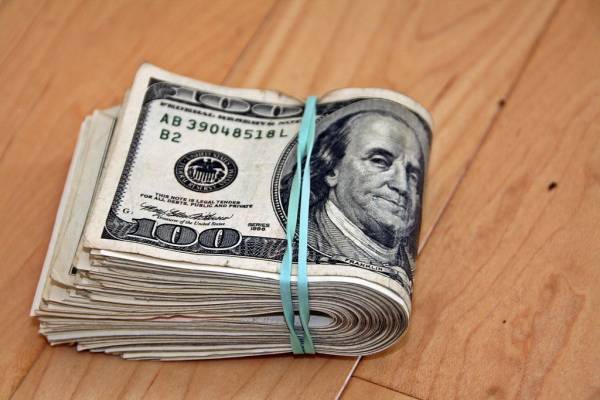 Photo: 401kcalculator.org
Photo: 401kcalculator.org
In his opinion, all this affects the autumn decrease in average rates on 1 – 1,5% on deposits, according to the methodology of the NBU, up to 13 – 14% annual in UAH, and 2 – 4% in dollars. At the same time, banks continued to consistently work on, need to continue to monitor the situation in the financial sector.
“It’s too early to say that confidence in banks is restored, because deposits due to lower rates losing popularity as a method of saving. This contributes to insufficient income level of the population, because the Ukrainians can’t make serious savings,” the economist said. Another risk for finsistemy — high inflation in Ukraine, which for the year is 10%. “But in developed countries, the annual inflation rate does not exceed 1 – 3%, therefore, the risks in the financial sector in the form of collapse of banks and a sharp devaluation of the national currency is still strong. To eliminate them, will succeed only through 3 – 5 years by reducing inflation and ensuring stable growth of the economy,” said Nikitchenko.
In such a situation Nikitchenko recommends Ukrainians who want to get high income from deposits, to keep their savings in dollars, because, according to the forecast of the Cabinet, the rate increases from year to year: “In a period of declining rates profitable to open deposits in the long term to lock in high yields. But you have to read the contract, so the Bank had no right to change the rate. In this part of the money necessary to keep demand and what is possible — for deposits for a year.”
Alternative to deposits will be buying a new property
Finanalitik ICU Mykhailo demo notes: reliable banks rarely offer deposits above 14% in local currency or dollar more than 2-3% per annum, therefore, Ukrainians should look for new instruments of investment. “Bank eased currency controls, allowing the citizens to legally withdraw from the country up to $50 thousand per year for investment abroad.
But interest rates on deposits in the EU is almost zero, so it will be interesting to those who, for example, pays for training,” says demo. But to generate income can come and real estate: “With 50 thousand dollars difficult to qualify for an apartment in the EU. But actively built apartments in Kiev, Kharkov, Lviv, Odessa. In many ways, this building boom helped “bankopad” and devaluation, which triggered the investment of savings of the Ukrainians in the housing. In the long term 5 – 10 years, such investments can be successful, but does not guarantee the opportunity to exit the investment with profit in a short time. The migration of money from deposits in the construction is almost over, and purchasing power remains low, which makes a quick sale of real estate,” — says demo.
Also you can think about the purchase of government securities (t-bills). “The volume of investments of banks, insurance and nonfinancial companies in t-bills is 300 billion. This is almost equal to the entire amount of cash hryvnia in circulation. Invested in government bonds, the investor receives a good yield (14% in local currency and 5.5% in foreign currency), low risk (government paid on government bonds in a crisis). No tax on income (18%) levied on interest on deposits. Paper can be sold at any time. Minus bureaucracy when opening securities accounts and filing the tax. Although today few people provide public access to this tool, you can ask for help in the investment company,” says demo.

